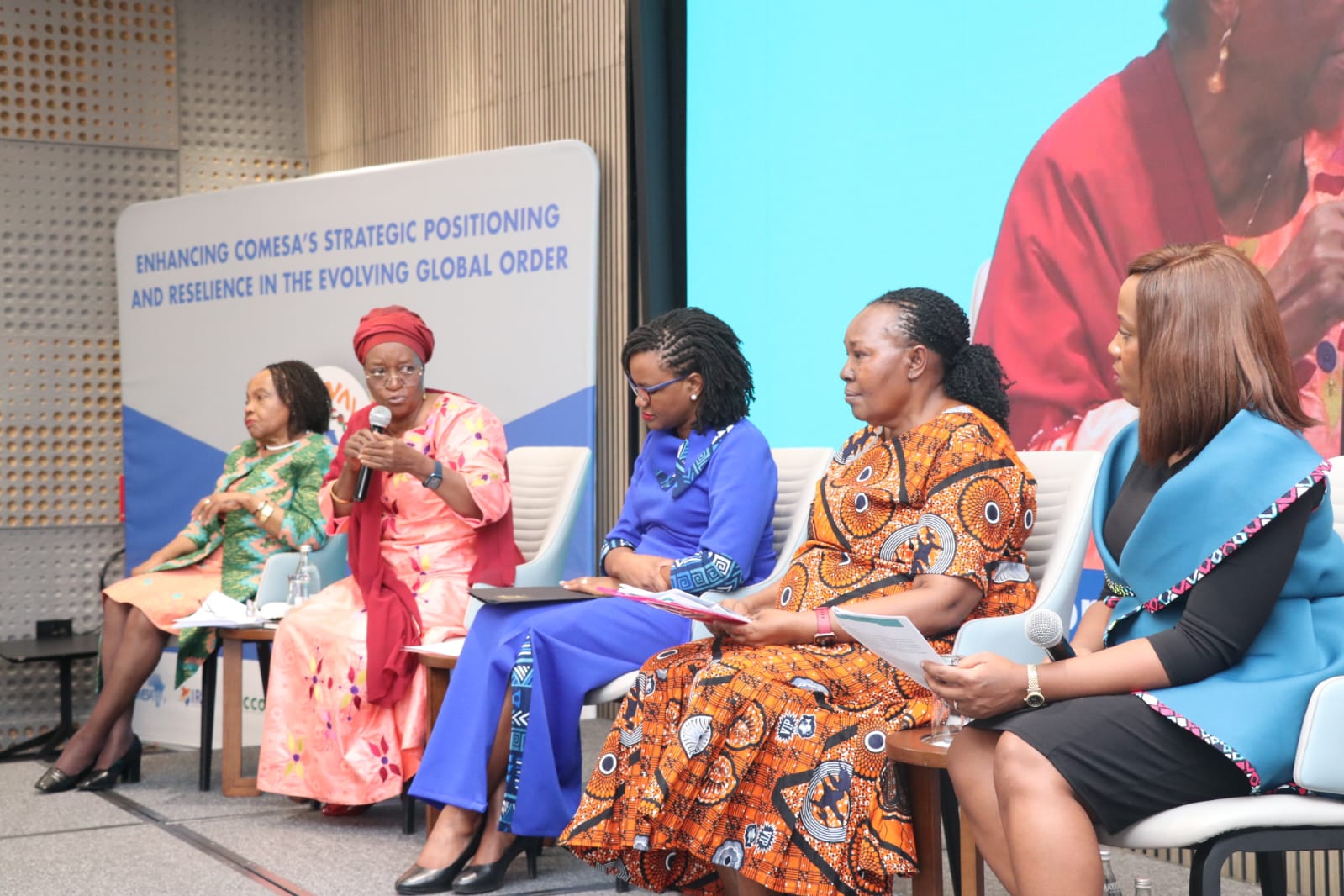Zainab Bangura’s candid remarks expose the deep-rooted gender imbalance at the heart of global diplomacy. Her observation that male-dominated political structures continue to shape the election of UN secretaries general underscores how systemic bias, not merit, often dictates leadership outcomes. Despite decades of advocacy for gender parity, the top UN job remains elusive for women—a reflection of global politics rather than institutional incapacity. Bangura’s call to “keep dreaming” resonates as both a challenge and a charge, reminding the world that until power dynamics shift, equality at the highest level of multilateralism will remain aspirational.
 AU Panel of the Wise retired judge Effie Owour, UN office at Nairobi director general Zainab Bangura, Diaspora Affairs PS Roseline Njogu, former Foreign Affairs minister and Taita Taveta University chancellor Sally Kosgei and moderator and University of Nairobi institute of diplomacy and international studies lecturer Winnie Rugutt at a panel discussion during the African women in diplomacy at IRSK annual conference at Best Western Plus Meridian hotel, Westlands on October 3, 2024 /LEAH MUKANGAI
AU Panel of the Wise retired judge Effie Owour, UN office at Nairobi director general Zainab Bangura, Diaspora Affairs PS Roseline Njogu, former Foreign Affairs minister and Taita Taveta University chancellor Sally Kosgei and moderator and University of Nairobi institute of diplomacy and international studies lecturer Winnie Rugutt at a panel discussion during the African women in diplomacy at IRSK annual conference at Best Western Plus Meridian hotel, Westlands on October 3, 2024 /LEAH MUKANGAI
Having a woman at the helm of the United Nations remains a distant dream, according to UN director general Zainab Bangura.
Structural and
political barriers continue to hinder women’s ascent to the organisation’s
highest office.
Bangura, who heads the UN Office at Nairobi (UNON), said the election of a secretary general is decided by heads of
state—a process dominated by men.
“We have fewer women heads of state.
These are the barriers and obstacles that we are talking about,” she said during
a panel discussion themed 'Inspiring the Future: African Women in
Diplomacy', held in Nairobi on October 3.
The forum, which brought together seasoned diplomats and public servants, explored the role of women in global leadership and the need to ensure women occupy decision-making tables where international and regional policies are shaped.
Other panellists included retired judge Effie Owuor of the AU Panel of the Wise, Diaspora Affairs PS
Roseline Njogu and former Foreign Affairs minister Sally Kosgei.
Bangura explained that once heads of state endorse a candidate for the position of UN secretary general, intense lobbying begins through embassies.
“A country and its region have to
nominate the candidate. It is through a gentleman’s agreement that a secretary general is endorsed,” she said.
Bangura said at the general assembly level, five countries hold veto powers—all led by men—further tilting the scale against women candidates.
“Having a woman secretary general
is a nightmare, as we have structural barriers. There is a possibility, but we
have to keep dreaming,” she said.
Bangura, a Sierra Leonean and seasoned diplomat, was appointed by UN Secretary General António Guterres as director general of UNON on December 30, 2019.
Before that, she served as the
special representative of the Secretary General on sexual violence in conflict
from 2012 to 2017, where she championed the protection of women and girls in
war-torn regions.
Her long career includes stints as
Sierra Leone’s Minister of Health and Sanitation (2010–2012) and Minister of
Foreign Affairs and International Cooperation (2007–2010). She has also led
civil society organisations such as the National Accountability Groups and the
Campaign for Good Governance.
A human rights advocate and
conflict-resolution expert, Bangura began her UN career in the United Nations
Mission in Liberia, where she ran the mission’s largest civilian component,
focusing on strengthening government institutions and promoting community reconciliation.
She holds a bachelor’s degree
from Fourah Bay College in Freetown, Sierra Leone, and advanced diplomas in
insurance management from the University of London and Nottingham University.
The UN has never had a female secretary general since its founding in 1945.
The post has been held by nine men, from Norway’s Trygve Lie in 1946 to the current António Guterres of Portugal.
His predecessors include Ban Ki-moon (Republic of Korea),
Kofi Annan (Ghana), Boutros Boutros-Ghali (Egypt), Javier Pérez de Cuéllar
(Peru), Kurt Waldheim (Austria), U Thant (Myanmar), Dag Hammarskjöld (Sweden) and Trygve Lie (Norway).
Currently, Nigerian diplomat Amina Mohammed serves as the UN deputy secretary general and chair of the United Nations
Sustainable Development Group—a reminder, Bangura said, that women can lead
at the highest levels if given a fair chance.















